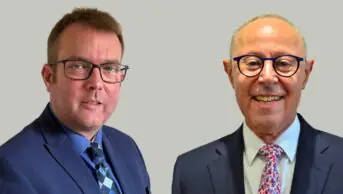More is being expected of trainee healthcare professionals; clinical educators must enable trainees to feel empowered and encourage them to seek their own solutions, as opposed to professionals telling them what they should do[1]
.
The Royal Surrey County Hospital NHS Foundation Trust sought to promote this culture. Since 2015, one-to-one coaching has been an integral part of the trust’s training programmes for pharmacy preregistration trainees. The coaching provides trainees with a safe, confidential space to discuss aspects of work and prepare them for professional registration.
To promote this culture among other trainee groups, an interprofessional coaching programme was designed and trialled with pharmacy and radiotherapy trainees. The four-week group coaching programme focused on self belief, resilience, time management and interview skills.
The programme was evaluated using two online questionnaires that maintained the anonymity of participants. Some 15 participants were asked to gauge their current confidence levels with each theme before and after attending the programme. Participants were also asked to consider how the coaching process had an impact on their attitudes and behaviours towards maximising their personal and professional potential.
- Resilience (13 participants):
- Before the programme 4 people felt confident, 4 people were unconfident and 5 people were neither confident or unconfident);
- After the programme, 12 people felt confident and 1 person felt neither confident or unconfident.
- Self belief (5 participants):
- Before the programme, 3 people were neither confident or unconfident, 1 person was unconfident and 1 person was confident;
- After the programme, 3 people felt neither confident or unconfident, and 2 people felt unconfident.
- Time management (12 participants):
- Before the programme, 8 people felt confident, and 3 people felt neither confident or unconfident;
- After the programme, 8 people felt confident and 4 people felt very confident.
- Interview skills (8 participants):
- Before the programme, 3 people felt unconfident, 3 people felt confident and 2 people felt neither confident or unconfident;
- After the programme, 7 people felt confident and 1 person felt very confident.
Some participants gave testimonials for the programme:
- “The setup of having a coach and contribution of others in the group was very helpful”;
- “I feel better within myself knowing I have new strategies to try”;
- “I have some ideas to improve myself at work and at home”;
- “A positive step towards self-improvement”;
- “On a personal level, it has helped make me more mindful of others”.
After a successful pilot, the programme was rolled out across the trust in October 2018. Trainees embraced the group coaching sessions, valued the diversity of the interprofessional group and enjoyed taking part in group discussions in a safe environment.
Collaboration and networking across departments led to richer discussions and allowed individuals to gain the perspectives of other professions. The programme also addressed barriers to their learning, such as confidence, as well as the ability to build resilience and a positive mindset, and to recognise that they often share similar perceptions.
Results from the pilot project support our hypothesis that such a programme can improve staff wellbeing. Time and investment in developing our trainees supports the trust’s ethos of giving more focus to the education and development of the future workforce.
It was identified that the post-pilot questionnaire can assess only the initial impact of the intervention. Ongoing impact remains to be evaluated. The participants of the study will, therefore, be followed through their training programmes to assess the lasting impact of the sessions.
Overall, the study results support the adoption of group coaching to nurture our trainees during their placement, ensuring a positive learning environment and providing them with skills that they can carry through their professional life.
The group coaching programme has now been launched across the Trust. Additional cohorts have been scheduled owing to high demand.
Nicola Arnold, pharmacy education and development manager; associate director of learning and organisational development (acting), Royal Surrey County Hospital NHS Foundation Trust; registered coach, NHS Kent, Surrey and Sussex Leadership Academy
References
[1] Trad M. Mentoring radiation therapy students: a review and survey. Radiation Therapist 2009;18(2):101–108
You may also be interested in

Health news round-up: NICE approvals, fighting AMR and medicines safety concerns

Dale and Appelbe’s Pharmacy and Medicines Law: covering ‘essential ground in the most highly regulated areas of healthcare’
